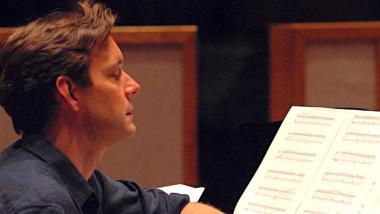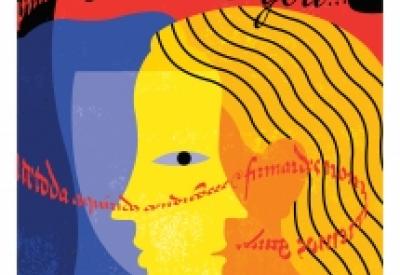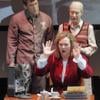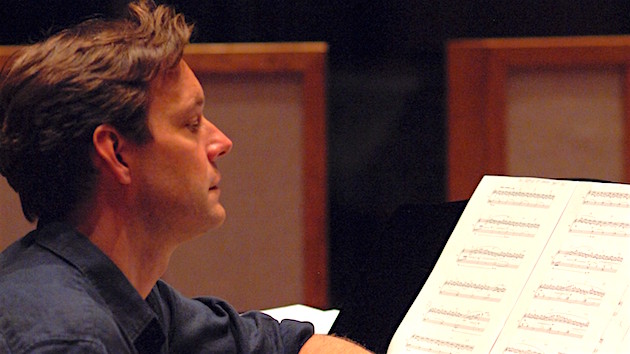
For the first commission in its 62-year history, the Merola Opera Program has turned to a team that has endeared itself to Bay Area audiences: composer Jake Heggie and librettist Gene Scheer. Their latest joint effort, If I Were You, premieres at Herbst Theatre August 1–6. With two alternating casts of Merolini conducted by Nicole Paiement, founder and artistic director of Opera Parallèle, and directed by Keturah Stickann, the opera will present a modern retailing of the Faust story that is loosely based on French-American writer Julien Green’s novel Si j’étais.
In mid-June, little more than a week after Merola’s latest crop of aspiring singers arrived in San Francisco, Heggie and I chatted by phone about his latest creation and the larger context from which it has birthed.
What do you want people to know about If I Were You?
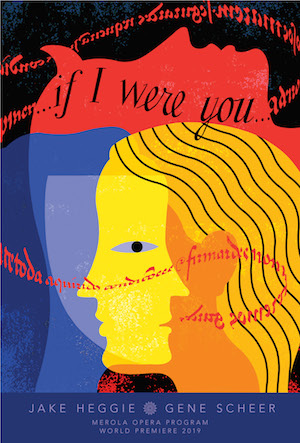
The opera is a modern telling of the Faust story. The bargain that aspiring writer Fabian Hart makes with the devil in disguise, Brittomara, is to sing his soul into someone else, and therefore live forever by pretending to be someone else. The big question that hovers over the opera — the universal question which is true in all our lives — is are you going to live pretending to be someone else, or are you going to die for living as yourself?
Because the tale is contemporary, people will see characters like themselves onstage. One of the piece’s fun devices is that the audience always knows who the devil is, but the characters don’t. The audience is in on something with the devil from the start. There are also elements of a Jekyll and Hyde and even, dare I say, a Frankenstein theme, because at the top of the opera, Brittomara brings Fabian back to life with electric shock. It’s a familiar theme that, in a sense, happens all the time with defibrillators.
Your music changes according to subject matter. Sometimes it’s fun and light, and sometimes it explores some very thorny areas. What can we expect from If I Were You?
Gene’s creation has challenged me to work in a different way and open up another gate of creativity. After writing, within a couple of years’ space, a comic opera, Great Scott!, with that musical language; a Holocaust opera; and It’s a Wonderful Life, Gene and I wanted to explore something very different — something that had a sense of magical realism, but with an undercurrent of dark poetry that used fewer words and gave more opportunities for music to truly soar.
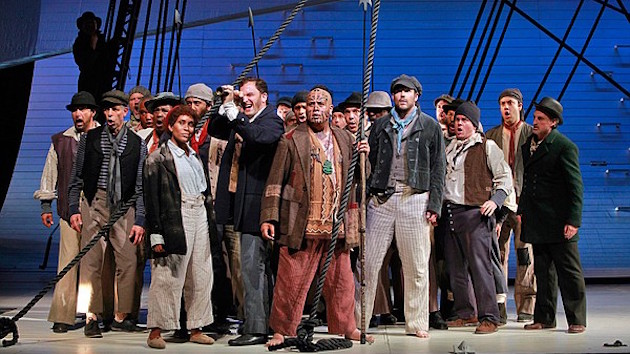
I felt like Moby-Dick was a big shift for me musically, and I feel the same way about this piece. The lyricism remains, but underneath it, because it’s the story of the devil and selling one’s soul and losing one’s identity and searching for something, there’s a lot of ache and yearning. There’s also this sense of darkness and being pulled down because the Devil is ultimately going to win. I challenged myself to explore a little chromaticism and some different, non-tonal centered harmonies as well as the soaring lyricism and grateful lines that are also there. And because it was commissioned by Merola, I wanted to give young singers a piece where they would learn something and grow while being challenged by a piece that will be done by professional companies one day.
Blasting high Cs, challenging coloratura, probing low notes?
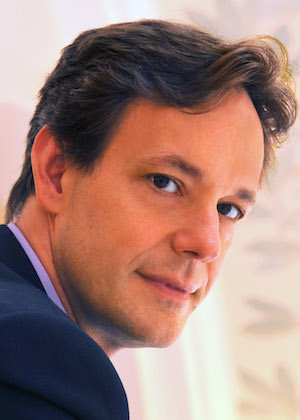
We have plenty of high notes as well as challenging acting demands for many different characters. For example, Brittomara the Devil is also disguised as an auto mechanic, an EMT, a bartender, and a hairdresser. It’s challenging to adopt that many styles and voices while still maintaining the essential character. The same applies to the soul of Fabian, which remains constant even though it goes through different personalities and different people. It takes over the body of a person who has already established a certain kind of music; then they’re invaded with Fabian’s soul and his music, which produces a combination that is a challenge to master in terms of color and style.
It’s a really fun vocal challenge as well as an acting challenge to convince the audience that something has shifted in your character because there’s a new soul residing in it. I find this exciting, and I think it’s exciting for an audience as well.
Do you ever find yourself altering a vocal line to suit a singer?
Absolutely. I do it all the time. My goal is not to defeat the singer. The singers are the ambassadors of the score who make it come to life. If something will sound better if slightly different or adjusted — those are ossia (alternate passages) — you see ossia notes all through history. The roles of Sister Helen in Dead Man Walking and Charlie in Three Decembers lie really high for mezzo and baritone, and sometimes singers need alternatives. But I don’t think, based on the two workshops we’ve done at CU Boulder and the full read-through we did at the Conservatory in January, that I’ll need to adjust lines in this opera.
Your “Program Note” for If I Were You” indicates that you’re going from commission to commission to commission. How is that for you?
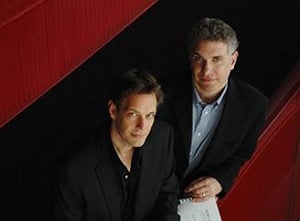
It’s awesome. It’s a miracle. I feel very, very fortunate. People keep asking me to write music, and I haven’t expired yet.
Busy is better for me; I work best under pressure. I’m able to be much more creative when I am insanely busy. When you actually have to get something down on the page, you can’t just think about it all the time. Your brain’s been figuring it out all along; you just have to get out of the way. You know that great Bernstein quote: “To achieve great things, two things are needed; a plan, and not quite enough time.” I believe that it’s very true.
It’s certainly a happier notion than the Freudian line that great art comes out of suffering.
Sometimes I don’t suffer. I’m quietly hysterical pretty much all of the time, but we’ve all been there.
In the fall, Dead Man Walking will receive its 70th production since its October 2000 premier at SF Opera. Right now, As One, another politically timely opera — a chamber opera for much smaller forces that addresses the transgender phenomenon — is the most performed opera in the U.S. Have you been drawn to move back into the political realm, given what’s happening in the world?
I think I address that, perhaps a little obliquely, in the subjects I pick. They all have something to do with about what’s going on in the world right now, even if they’re not ripped from the headlines particularly. Moby-Dick feels as current today as at any time, with a crazed, obsessive leader leading his people to ruin while persuading them that he’s right and there’s this one enemy out there that we need to destroy. That’s kind of the history of the world. It may not name names, but it addresses human history in the present.
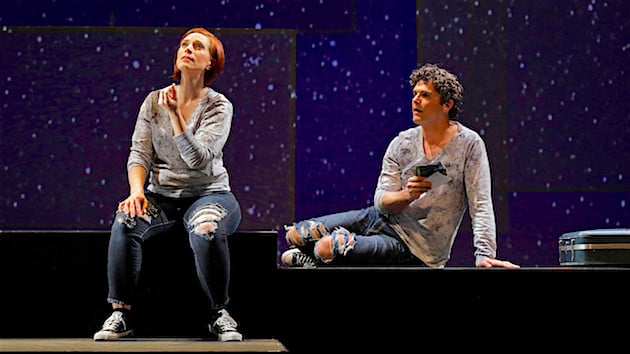
If I Were You is a Faust story — it’s about people looking for an identity where they can feel lovable, because they don’t. We live in a world that tells people that if you buy this thing or act this way, or look like this, then you’ll be fulfilled, lovable, and accepted. That’s a very confusing message, especially for young people. There’s so much shape-shifting going on in the world right now, and no shortage of people selling their souls, that it seems like a timely subject to address.
I like stories that are timely and timeless — big stories like the Faust story that has had so many different incarnations and continues to resonate in a different era. My opera It’s a Wonderful Life is based on a movie that continues to resonate with audiences because it addresses issues of community, along with issues of self-worth and self-loathing. Those are timeless subjects.
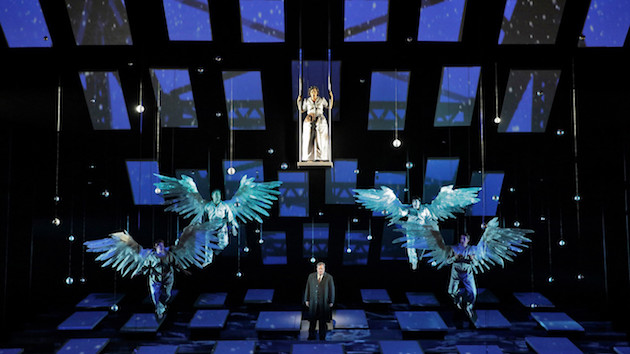
Have you seen the Elton John biopic, Rocketman? It’s essentially the story of If I Were You. It’s about this young man who doesn’t feel loved or worthy, like he has a place, so he keeps inventing new personas for himself. It explains a lot of Elton John’s music, and the texts he was drawn to early on. He’s looking for an identity and place where he feels acceptable to the world at large. It’s a constant human struggle.
Given how fast things are changing in classical music and the world, what do you feel about the future of opera?
I think opera will remain viable. Formerly, we almost smothered opera because we wanted it to be done only one particular way. The natural evolution of any art form is to evolve and move and grow through experimentation and trying things, and we didn’t allow that to happen in the professional opera world.
Now, we’re in this big transitional place that is scary. We can’t depend on the old norms. Technology is here to stay and has to be embraced and incorporated.
We really need to pay attention to making sure we get music and arts back into public schools so that people feel connected to it. We have to ensure that young people’s ideas matter, and the art form matters to them. That’s primary, and will give hope for the future of these art forms
You’re working on three other projects right now. Can you talk about them?
One is for the 72 Violins of Hope. They are violins that were played by Jews in concentration camps that were restored by a man in Israel over a period of 40 years. The first one that he opened to restore, which was given to him by the family of someone who died in Auschwitz, was full of ashes.
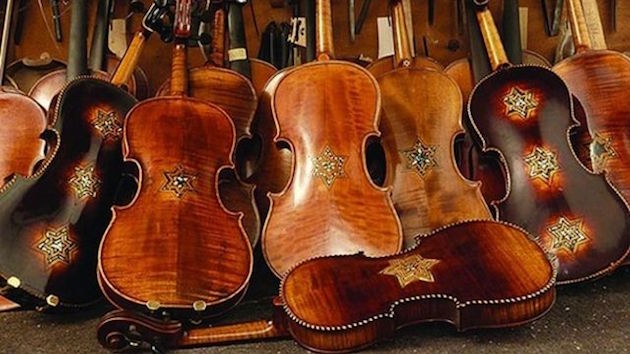
These violins have tremendous stories to tell about the journeys they’ve been through. They’re making their first West Coast visit, and they’ve never had a piece written for or about them to tell their stories. I was commissioned to write one for a quartet of the instruments, with the first performance scheduled for Kohl Mansion in Burlingame at the end of January — the 75th anniversary of the Liberation of Auschwitz — and several more to follow in the Bay Area. Sasha Cooke is the mezzo, Daniel Hope is the solo violinist.
After that is a song cycle for Canadian baritone Joshua Hopkins, commissioned by Houston Grand Opera and the Canadian Arts Council, with brand new poems written by Margaret Atwood. Josh’s sister was killed by her ex-spouse on the same day that he murdered his other two ex-spouses. In Canada and the UK, on average 3–5 women a week are murdered by a spouse, a partner or an ex. It turns out that Margaret Atwood had a friend who died the same way.
The third one is a new opera. All I can say at present is that it’s an old story that feels brand new.

